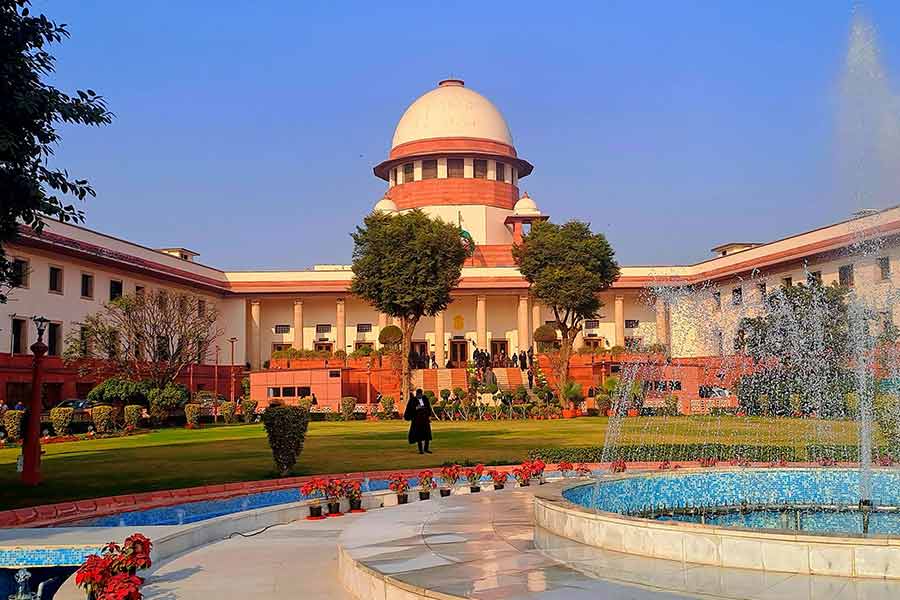A five-judge constitution bench on Thursday asked whether courts should “sit idle” if constitutional functionaries such as governors failed to clear bills passed by state legislatures, as it kept the option of “judicial review” open.
A bench headed by Chief Justice of India B.R. Gavai made the observation on the concluding 10th day of the marathon hearing on President Droupadi Murmu’s presidential reference for reconsideration of the Supreme Court’s April 8 judgment fixing timelines for governors and the President on the grant of assent to bills.
“Whosoever high one may be, as custodian of the Constitution, I publicly say I strongly believe in separation of powers and though judicial review should be there, there should not be judicial terrorism,” Justice Gavai said.
“But if one constitutional functionary fails to discharge its duty, would the custodian of the Constitution sit idle?” Justice Gavai asked solicitor-general Tushar Mehta, appearing for the Centre.
The bench, which included Justices Suya Kant, Vikram Nath, P.S. Narasimha and
A.S. Chandrukar, reserved its verdict.
Mehta argued that courts could not fix any timeline for governors nor issue directions to the gubernatorial authorities, as it would violate the theory of separation of powers where each wing of the Constitution had a distinct, independent power.
“The executive is also custodian of the fundamental rights of citizens. Likewise, the legislature is also custodian of the fundamental rights of citizens,” Mehta argued.
He said the judiciary, legislature and executive should not encroach upon the territory of the other.
According to the Centre, 90 per cent of the bills passed by legislatures over the past
50 years were cleared by the governors.
“It can’t be the case that the governor has the power to sit endlessly over the bills. Every bill has context-specific issues that need to be examined. It might need consultation and collaboration with the executive. Sometimes, because of popular perception, the legislature is compelled to pass it, but the executive requests the governor that we have passed it, you hold on…,” Mehta said.
He added: “There are a larger number of such contingencies, and it is constitutional collaboration and consultation that has worked. Imposing timelines would be self-destructing, apart from the fact that it is not permissible. It can’t be a case of perennial sitting over it, but this straightjacket (fixing timelines) formula may not
be permissible.”
President Murmu had made the reference in the wake of a judgment passed by the top court that neither the President nor the governor had any “pocket veto power” to indefinitely withhold bills passed by a state legislature. The court prescribed timelines of three months and one month for the two constitutional authorities to assent to bills.
Failure to adhere to the timelines would give the right to the aggrieved state to either move the high court concerned or the Supreme Court, a bench of Justices J.B. Pardiwala and R. Mahadevan had said while ordering “deemed” assent to the 10 bills passed by the Tamil Nadu Assembly.










